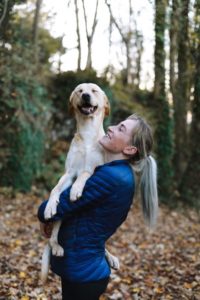Every day I walk in the morning. Some days I take my twelve-year-old dog, and other days, I leave him home to rest. Today was his day of rest, and while I can pick up the pace on my walk without him, it came to my attention how it has become routine for me as I learned to adapt to my dogs fluctuating good days and more challenging days as he ages. I ran into someone who often walks their beloved dog in the neighborhood. I can see how much the owner adores her. Over the past year, the dog has changed considerably. I learned that she is fourteen, and yet there are certain days where you would never know. But today she was struggling to carry out their early morning walk.
 It was symbolic for me, as I have spent the last eight years adapting to changes during my recovery from a mild traumatic brain injury. It also made me realize how even with our pets, are we as humans accepting of their changes, but not our own? Do we subconsciously ignore the changes they endure, pushing them to do more than they should? Or do we sadly see them as not who they once were? They may be different, but they are who we have always loved.
It was symbolic for me, as I have spent the last eight years adapting to changes during my recovery from a mild traumatic brain injury. It also made me realize how even with our pets, are we as humans accepting of their changes, but not our own? Do we subconsciously ignore the changes they endure, pushing them to do more than they should? Or do we sadly see them as not who they once were? They may be different, but they are who we have always loved.
Along my journey through rehabilitation, I finally realized, injured or not, we all age, we change, and although change can be complicated, learning to adapt and recognize each stage of life and recovery from injury does not mean giving up hope. It meant acknowledgment, grace, personal growth, and how new choices were taking me in a different and encouraging direction.
I read a saying once; it sounded something like, “If you want to see motivation, watch what happens when the very thing someone worked so hard to achieve is taken away.” I cannot say those were precisely the words, but I remember how they made me feel. As Dr. Deana Adams quoted, “many brain injury survivors are the strength and fabric of society, they learned to live, and after their injury, they learned how to live again.” Her words rang true to me in many ways. I am only one of the millions of mild brain injury survivors who walk out of the emergency room with a clear CT scan, slide through conventional neurological testing while joining the ranks of the invisible injured searching for help. As so often referenced by brain injury survivors, my “normal” appearance to everyone concealed a brewing silent health storm, as everything on the inside was imploding.
My successful recovery ended up with a unique blend of rehabilitative components, but the essential part of all was how my relationship with Jesus Christ strengthened. Through faith, hope, and perseverance, I found a joy-filled life that I wouldn’t dream of trading for my pre-injury self.
May the God of hope fill you with all joy and peace as you trust in him, so that you may overflow with hope by the power of the Holy Spirit. Romans 15:13 | NIV

Leave A Comment
You must be logged in to post a comment.